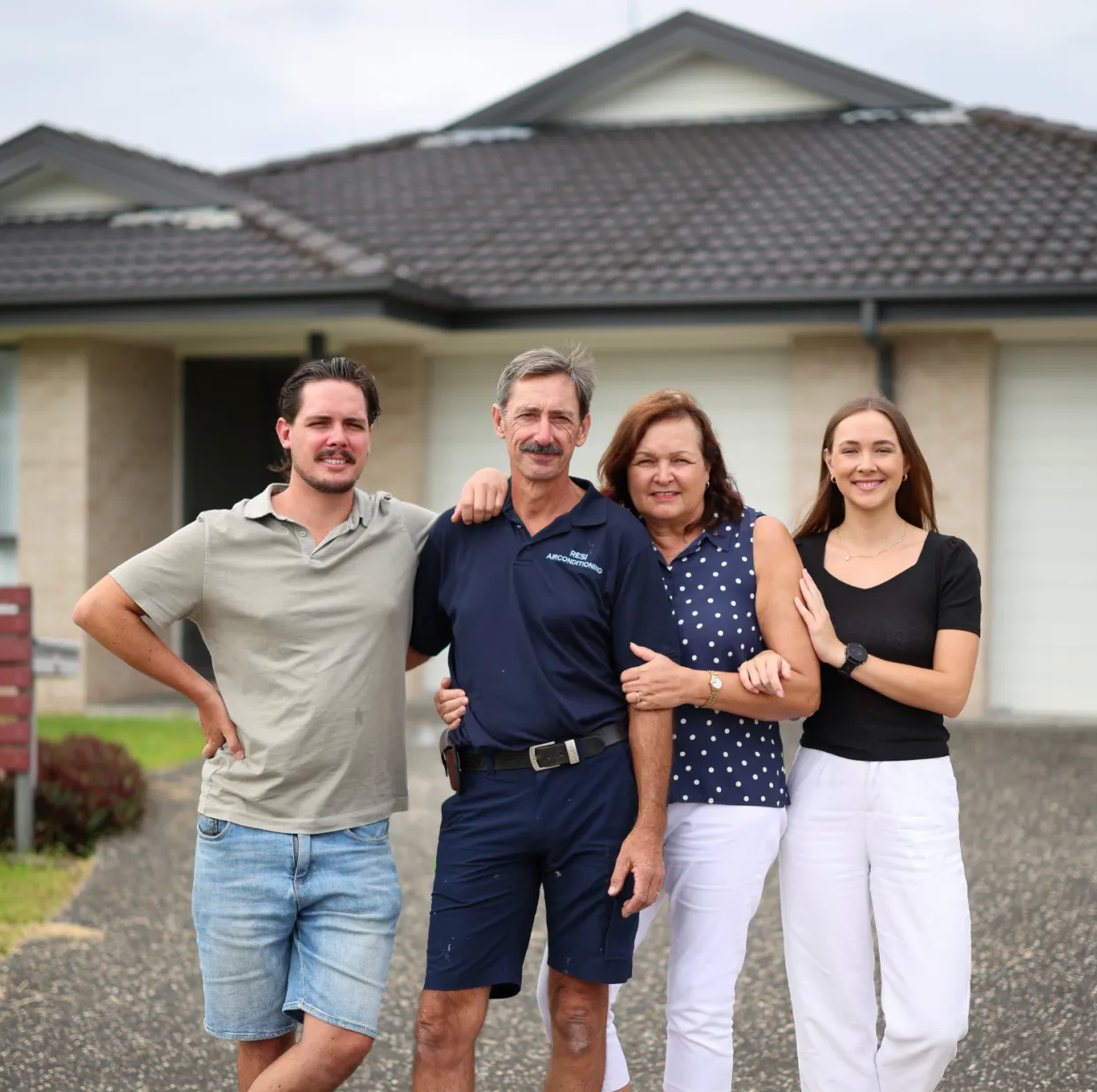9 JANUARY 2024 - As Australia's cost-of-living crisis deepens, a new form of intergenerational wealth transfer is emerging. Parents are increasingly risking their financial security to help their adult children enter the property market.
New research from Compare Club's biannual Bill Stress Index reveals a startling trend: one in five parents have already provided substantial financial support to their adult children, with many gifting or lending amounts exceeding $75,000. An additional 47% of parents are considering similar financial assistance, highlighting the growing pressure on the "Bank of Mum and Dad."
"We're seeing a fundamental shift in how younger Australians are entering the property market," says Kate Browne, Compare Club’s Head of Research. "Parental support has moved from being a nice advantage to virtually essential for many first-home buyers."
For Queensland business owners Pauline and Tony Saarman, helping their children onto the property ladder was a strategic decision that required careful financial planning. "Soon after COVID, when we saw prices going up, we said to the kids 'buy now or you won't afford it,'" said Pauline. The couple, who run an air conditioning business in Riverhill and have built their wealth through property investment, provided 20% deposits for both their children through loans from their offset account.
The Saarmans charged their children rent while they lived at home, directing these funds into savings accounts for future property deposits. Their daughter, a 25-year-old teacher, has already leveraged this support into a second property, while their son, a tradesperson, has purchased near his parents and offset costs by taking in housemates.
However, this intergenerational support comes at a cost. The research indicates that 6% of parents have either turned to reverse mortgages or intend to to help their children, potentially compromising their retirement security.
"When parents exhaust their savings or take on debt to help their children, they often sacrifice their financial stability. We're seeing cases where the Bank of Mum and Dad is effectively operating as an unregulated lending institution, but without the safety nets," said Kate Browne.
The situation reflects broader challenges in Australia's property market. As the Saarmans note, "Houses are tough; the prices are just crazy. We went to an auction recently, and a basic home cost $1.3m. Buying a house's always been difficult, but now it's peaked even more," said Pauline.
“The Bank of Mum and Dad remains one of the few viable paths to property ownership for many young Australians, but at what cost to their parents' financial security remains to be seen” said Kate Browne.
It’s not just first-time home buyers feeling the pressure. The Bill Stress Index reveals a concerning 246% surge since May 2024 in high-income households using over 75% of their income for bills.
"Our research shows the cost of living crisis is now significantly impacting even high-income earners. This suggests we're facing a broader affordability crisis that cuts across all income levels," says Kate Browne.
Utilities remain the biggest bill of concern with 45% of respondents identifying it as their primary financial stress followed by mortgage repayments stress impacting 26.17% of respondents and rental stress affecting 20.09% of Australians. Buy Now Pay Later services usage surged 50% in last six months
“The good news is that three in five Australians are now paying bills on time, up 14% from May and overall bill stress decreased by 21% across key bills in the last six months. Credit card use for bill payments is down 4% since May” says Kate Browne.
-ENDS-
NOTES
*1000 people surveyed
For media enquiries:
Jasmine Kostas
Media + Capital Partners
0425 327 224
jasmine.kostas@mcpartners.com.au
About Compare Club
Compare Club is one of Australia’s fastest-growing personal finance marketplaces. It helps Australians save money by navigating complicated and important financial decisions. Compare Club’s panel of experts offers bespoke advice to over 3.6 million members making 1 million product enquiries per year on key financial decisions, including health insurance, electricity and gas bills, and personal, car, and home loans. Compare Club is locally owned and employs 350 passionate staff across Sydney, Melbourne, and Brisbane and another 50 staff in Indonesia and the Philippines.
